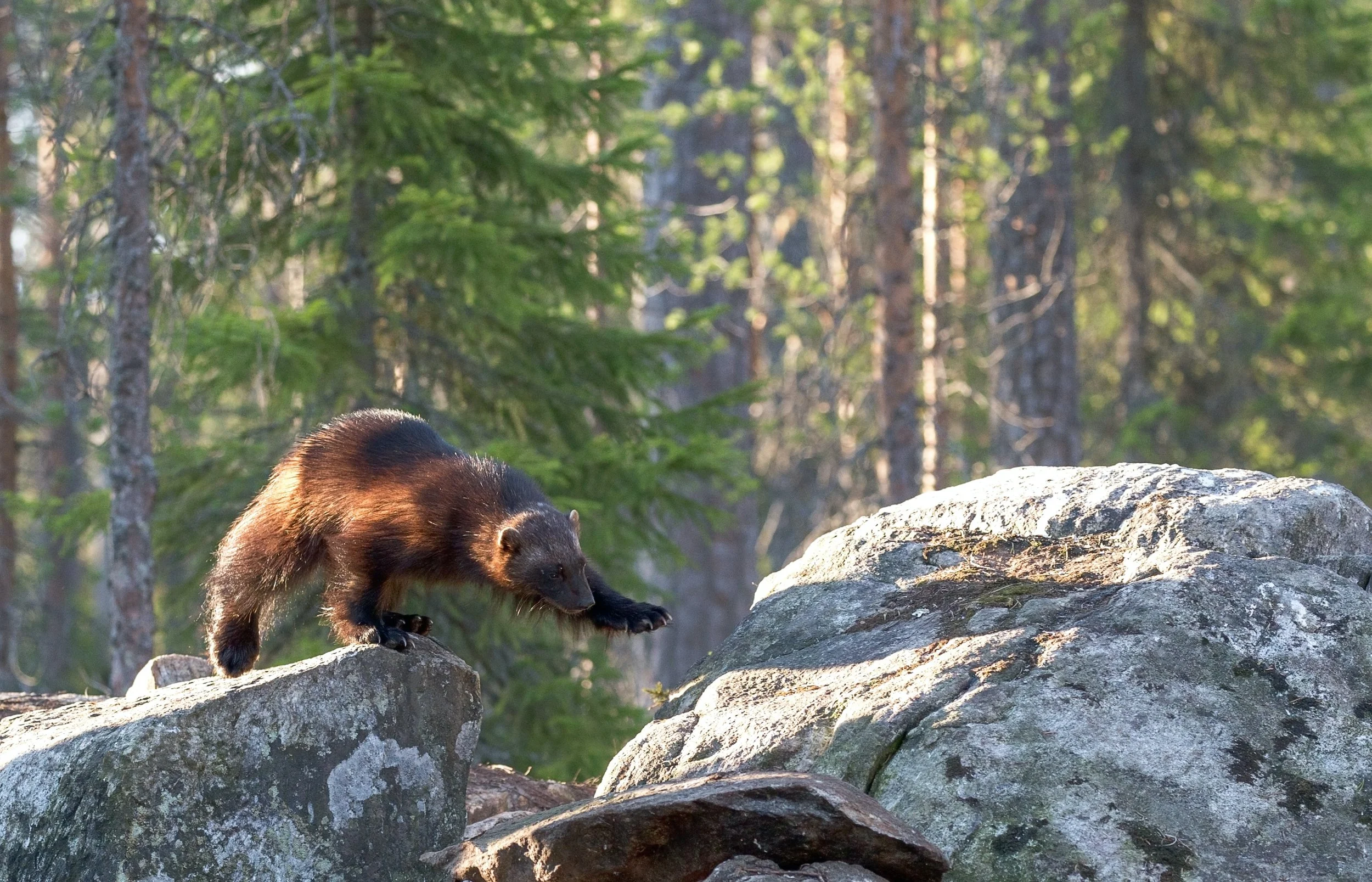Wolverines To Receive US Federal Protection To Help Counter Threats
The impacts of the climate crisis and habitat loss are endangering the North American wolverine, which will now be listed in the Endangered Species Act.
A North American wolverine. Credit: National Park Service
The North American wolverine will receive federal protections to help preserve its populations in the lower 48 states, the U.S. Fish and Wildlife Service (USFWS) announced today.
By listing the animal as a threatened species under the Endangered Species Act, the rare wilderness species will now gain new legal protections and programs for recovery.
The decision comes after decades of campaigning by conservationists that included six rounds of successful litigation to secure federal protections.
Threats to the wolverine are primarily a result of the impacts of climate change, which has accelerated habitat degradation. Wolverines depend on areas with deep snow through late spring, which pregnant females utilize to dig their dens and to give birth. But habitat loss, along with over a century of trapping, has taken such a toll that scientists estimate that no more than 300 wolverines are left in the lower 48 states.
Remaining wolverine populations are now small and fragmented, and are at risk of localized extinctions and inbreeding.
The low number is a stark contrast to past populations of wolverines, who once roamed across the northern tier of the United States and as far south as New Mexico in the Rockies. Today, they exist only in Idaho, Montana, Washington, Wyoming, and northeast Oregon.
“I’m thrilled that the Fish and Wildlife Service finally followed the science and granted wolverines the federal protections they need to survive and recover,” said Andrea Zaccardi, the Center for Biological Diversity’s carnivore conservation legal director. “Like so many other species, wolverines waited far too long for federal protections, but I’m overjoyed that they’re finally on the path to recovery.”
Among options for recovery, potential plans could include bringing wolverines back to Colorado. “As the climate changes, Colorado’s high elevation mountains are expected to stay snowier and colder than other places where wolverines live,” explains Megan Mueller, a conservation biologist for Rocky Mountain Wild.
Such recovery plans would help give climate refuge to wolverines, who the USFWS say are “imperiled” by climate change and its effects.
Earlier this month, a wolverine was shot dead and skinned on a road in the Beaverhead-Deerlodge National Forest. A reward of $11,000 is being offered by park officials and wildlife groups for any information on the illegal killing of the wolverine.
We Have A Favor To Ask…
Species Unite amplifies well-researched solutions to some of the most abusive animal industries operating today.
At this crucial moment, with worldwide momentum for change building, it’s vital we share these animal-free solutions with the world - and we need your help.
We’re a nonprofit, and so to keep sharing these solutions, we’re relying on you - with your support, we can continue our essential work in growing a powerful community of animal advocates this year.
More stories:
Species Unite
A collection of stories of those who fight the good fight on behalf of animals.





Evaluating drugs with cutting-edge technology instead of animal testing will improve drug safety and cut development times, the agency said as it reveals a roadmap to increase non-animal research techniques.